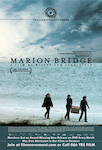20 Apr Do we sell filmmaking short by calling it an “industry?”





Last week I drafted a speech Stephen McNeil might use to extract his government from its unnecessary and destructive film tax crisis. Labour lawyer and New Democrat Ron Stockton took issue with my offering, and in the process made a point that deserves more consideration:
The arts industry—it somehow seems wrong to call it an industry, because it reduces it to economics—is different than manufacturing airplane parts or providing call centre services.
Civilizations have existed and thrived without manufacturing industries and service centres, but as best we can tell, humankind probably started making art as soon as our ancestors stood up. We need the arts as much as we need air, water, food, and companionship. Therefore, it should be considered in a different light, even if it costs us to have it…
[Your proposed speech] is what Darrell Dexter should have made after summarily announcing the end of funding for the Yarmouth ferry, but the film industry is a different kettle of fish.
I’d support it if McNeil made the speech you proposed, but included in it that the government would look at all the contributions the film industry makes to citizens, rather than just the economics, and if he would enter into those discussions with an open mind, rather than having already concluded the film tax credit is not affordable.
I’ve criticized McNeil and his Finance Minister, Diana Whalen, for not recognizing the role filmmaking plays attracting and retaining dedicated, creative young people to Nova Scotia. But that, too, is at least partly an economic argument.
Stockton is making a broader and more important point. We remember great civilizations of the past more for the art works they produced—the paintings, architecture, sculpture, myths, and literature—than for their economic prowess.
In a future centuries, present day Nova Scotia is far more likely to be remembered for Trailer Park Boys, “The Boat,” Marion Bridge, and “Peter’s Dream,” than it is for Michelin Tire, Port Hawkesbury Paper, and ships that did or did not eventually start here.
If we reduce every government program to its monetary return, we lose something more important than tax revenue and jobs: We lose pieces of our heart and soul.
– –
(I cannot resist pointing out that the five Nova Scotia movies pictured above were all written about, and filmed in, Cape Breton, the province’s notorious economic basket case. I didn’t do that deliberately; that’s just how it worked out. Cape Breton is Nova Scotia’s cultural engine.)
